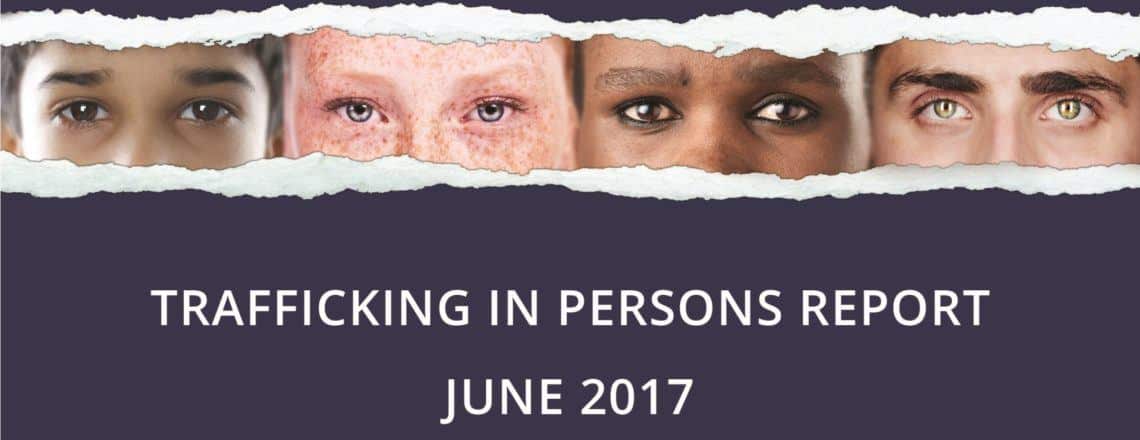Last week, the U.S. Department of State delivered its annual Trafficking in Persons report. Though the report is much anticipated each year by anti-trafficking advocates, this year drew extra attention as the first report released by Secretary of State Rex Tillerson in the Trump administration, and in the wake of two straight years of allegations that political considerations had weighted some country rankings.
There is much in this report for which the State Department should be commended, in particular:
-
Turkmenistan and Uzbekistan retain their Tier 3 ranking. Both Central Asian nations rely on state-run forced labor to produce cotton for state-owned enterprises. The TIP Report rightfully notes the systemic nature of forced labor in both countries, and highlights ongoing, violent repression of civil society activists who document use of forced labor. We believe that governments like those in Turkmenistan and Uzbekistan who are themselves the perpetrators of human trafficking systems should be relegated to an automatic Tier 3 distinction.
-
The Yilan Migrant Fishermen Union recognized as a TIP Hero. As one of the only registered unions that organize migrant fishers, this Taiwanese union is a model that should be expanded and emulated. Many countries, particularly in Southeast Asia, restrict freedom of association for migrant workers. The Yilan Union is an example of how respect for those rights are critical to the fight against human trafficking. They are imminently worthy of the award, and the State Department should be lauded for highlighting the right of migrant workers to organize as a counter-trafficking tool.
Unfortunately, however, politicization of the report remained a serious concern, evidenced in several unwarranted upgrades:
- Malaysia moved up to Tier 2: This is the second upgrade for Malaysia, a hub of labor trafficking, in the last three years. The weak justifications given in the report pale in comparison to the realities on the ground. Malaysia actually increased the migrant levy that must be paid to employ migrant workers, and declared that it is workers who must pay that levy, reversing a previous decision that would have forced employers to pay. Combined with the fact that employers are legally allowed to hold workers’ passports, debt bondage is a de jure reality endemic in export commodity sectors, including palm oil and electronics. With somewhere between 3 to 5 million migrant workers, largely undocumented and trapped in precarious employment, the paltry 1,500 victims identified masks rather than addresses the problem. Malaysia has also failed to prosecute a single Malaysian official, or convict a single Malaysian person, for involvement in the Rohingya migrant trafficking death camps found on the Malaysia-Thai border in 2015.
- Qatar moved up to Tier 2: Similarly to Malaysia, Qatari law gives employers wide leeway that fosters debt bondage and forced labor among the more than 2 million migrant workers laboring in Qatar. International campaigns highlighted forced labor in the construction of facilities for the 2022 World Cup. The TIP Report cited revisions to the sponsorship system in its upgrade that would provide some flexibility in the ability of migrant workers to change employers, but those changes are incomplete and not yet implemented. High recruitment fees and passport confiscation remain common, which combined with the draconian laws that prohibit workers from leaving the country without employer permission, leaves workers at a high risk of exploitation.
ILRF is also disappointed that Thailand’s premature upgrade to the Tier 2 Watchlist last year remained this year. Evidence from throughout 2016 shows that despite legal reforms made in 2015 and 2016, the reality on the ground has changed little for migrant workers, who are still vulnerable to trafficking. High recruitment fees, limited freedom of movement, degrading and illegal working conditions, and other indications of human trafficking remained prevalent in the export industries where migrant workers are still a large segment of the labor force. Thailand also showed in 2016 that its judicial system is unable to provide justice for migrant workers. Traffickers were acquitted with a deeply flawed decision out of Thailand’s newly established anti-human trafficking court in the case brought by 15 fishermen in the port city of Ranong, while 14 migrant workers were detained and charged with criminal defamation for reporting forced labor conditions on a chicken farm to Thailand’s Human Rights Commission.
ILRF is also concerned with the Tier 1 ranking for the United States, despite labor migration policies and practices that leave workers vulnerable to human trafficking. There were only 13 prosecutions of labor trafficking cases in the United States, which is a shockingly low number and entirely inadequate given the scope of the problem. ILRF allies who organize workers in the United States on temporary visa programs report problems with workers being forced to pay recruitment fees, despite a legal prohibition on doing so. Although outside the scope of this reporting period, evidence is mounting that a recent executive order on deportation is making it more difficult for migrants to report crimes, and that immigration enforcement officers may even be targeting potential victims, which will hinder their ability to report human trafficking. Aggressive actions to protect migrant workers from trafficking must be implemented to counter this trend, and the United States should dramatically increase its prosecution of labor trafficking cases. If not, it should be considered for a downgrade in next year’s report.
The inconsistency in country rankings remain a serious concern that undermines the credibility of the TIP Report. We believe it is important for accountability measures to be strengthened that ensure country rankings are based on accomplished outcomes, not promised changes or reforms on paper that are unenforced in practice, and that the reason for changes in rankings are thoroughly described and aligned with the minimum standards outlined in the Trafficking Victims Protection Act.
Originally posted on the International Labor Rights Forum, July 2 2017




